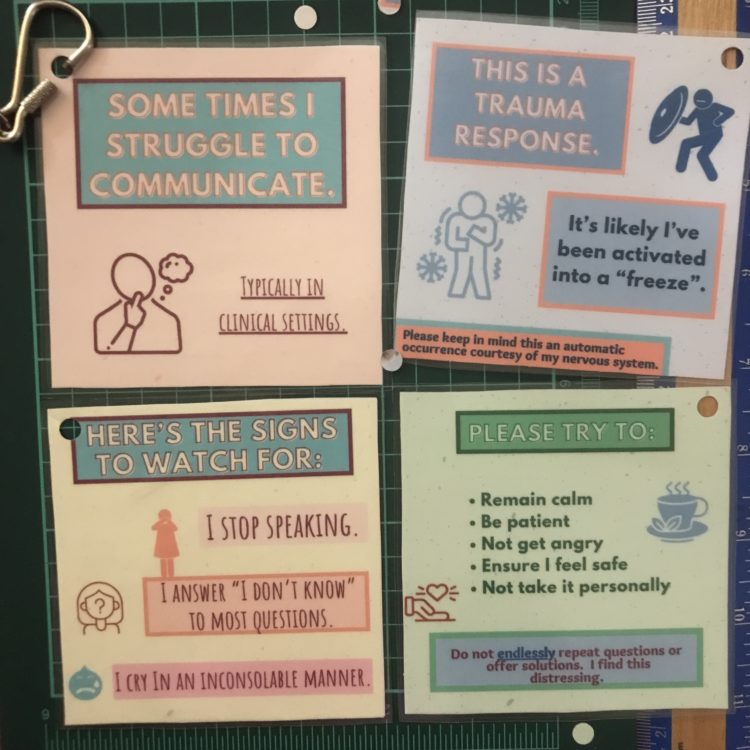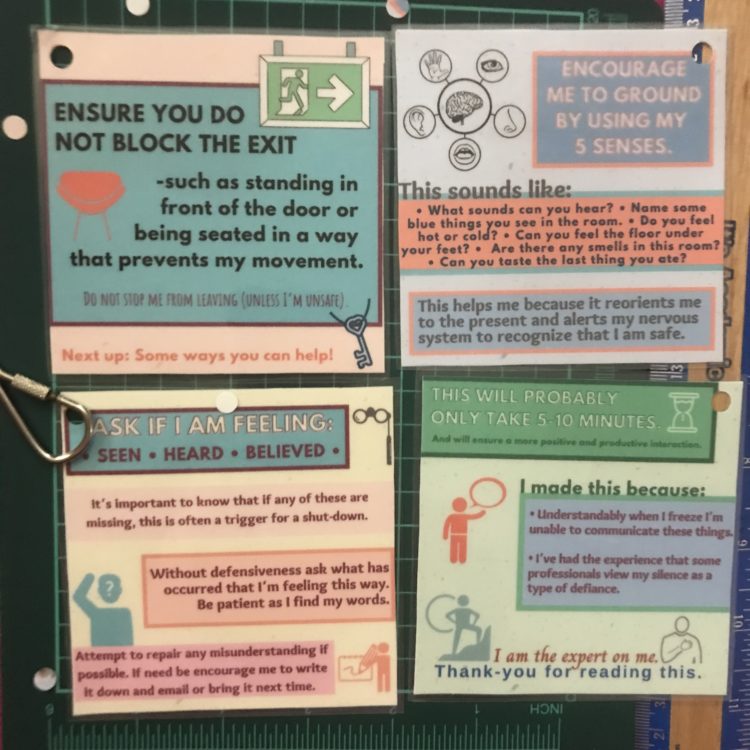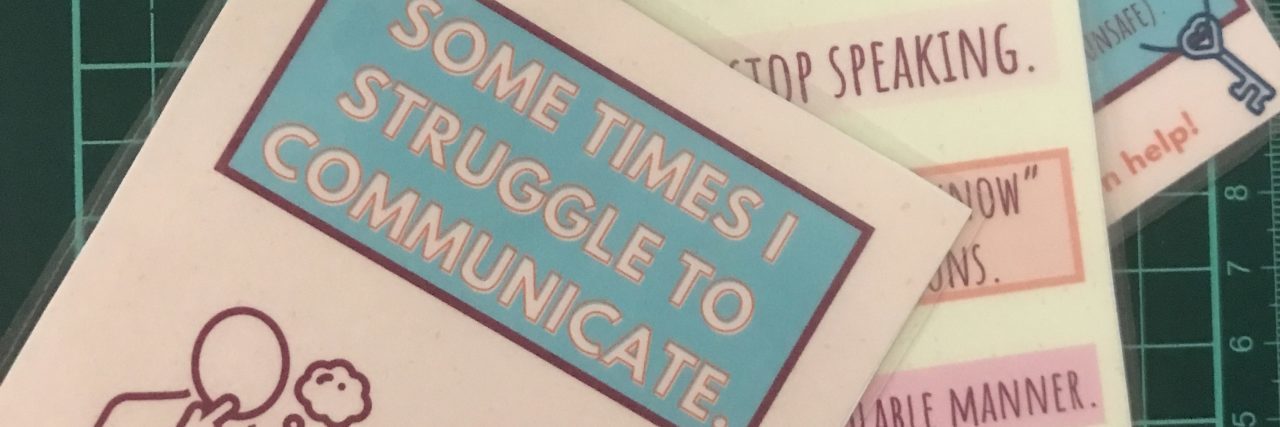My Creative Solution for When C-PTSD Makes Me Struggle to Communicate
Editor's Note
If you’ve experienced domestic violence or emotional abuse, sexual abuse or assault, the following post could be potentially triggering.
You can contact The National Sexual Assault Telephone Hotline at 1-800-656-4673.
You can contact The National Domestic Violence Hotline online by selecting “chat now” or calling 1-800-799-7233.
You can also contact the Crisis Text Line by texting “START” to 741741.
Sometimes I struggle to communicate, typically with medical professionals. I also experience complex post-traumatic stress disorder (C-PTSD). I believe my difficulty with talking in such situations and this disorder are directly linked. I’ve found a unique way to remedy this problem and I’d love to share my idea with you. First, a little backstory.
A few years ago, I went to the emergency room for assistance with my mental health. I made my way through the majority of the process without much issue… that is, until a few minutes into speaking with the doctor. It was at this point I started to get that (unfortunately common) gnawing feeling that I was not being taken seriously. Things went downhill from there. In that moment, I ceased being able to respond. He found this bothersome (or I don’t know what) and he eventually proceeded to angrily shout my name in my face. You likely have correctly surmised that this did not foster an improved dialogue, nor was it trauma-informed behavior.
I did eventually get the help I needed during that hospital visit, yet it certainly wasn’t from him. This isn’t the first time something like this has happened and it probably won’t be the last. This is why.
As I stated prior, I experience C-PTSD, and my occasional inability to communicate stems from trauma and this subsequent disorder. I believe that there are times where I am so triggered or overwhelmed, I become immobile due to a dissociative-style trauma response.
In psychology, this is sometimes referred to as going into shutdown, which I feel describes it well. In fact, I refer to this as my “Windows 95 brain.” (I’m old.) Meaning my brain loads things slowly, and there’s a good chance it may just freeze or crash.
In my case, the freeze response was often the way my nervous system chose to keep me safe, during and after the traumatic moments of my past. While this trauma did not involve medical professionals, I have a tendency to view them as authority figures, which includes a power imbalance that can be triggering to me. It’s for that reason my shutdowns tend to happen in such settings.
I recently experienced another one of these shutdowns in the presence of a doctor and unfortunately in keeping with the pattern, things took a very negative turn. After the fact, I was trying to think of ways, I could improve outcomes when this occurs, as I’ve grown tired of the distressing direction this all seems to take.
In the past, I worked with children diagnosed with autism, who used the Picture Exchange Communication System (PECS), and through my brainstorming, this helped to give me a great idea. While for years now I have regularly made designs for my social media, I had not considered the possibility of creating my own style of communication cards… until now.
This idea excited me, and I made up an eight-part design that I then printed and had laminated. On these cards, I wrote an easy explanation of my shutdowns, why it happens and what does and doesn’t help when I’m in this space. I used Canva to create them and enjoyed being able to bring it more to life with the use of fun graphics. I got them laminated at Staples and got the clip on Amazon. This process took me a few months to see all the way through, and it was worth it! I also made a bonus page with some other explanations regarding C-PTSD.


I have not yet had an occasion to use my creation, but that day will come. I tend to find myself in this type of situation about once a year, so I can reasonably expect the need will arise. In the meantime, I have shown them to some professionals who support me regularly, and I received feedback that they thought my cards were both creative and useful. I’m inclined to agree.
Now that I’ve got the process down, I’m interested in making some additional cards, largely for myself. I’m thinking of making designs that can help remind me what to do if I’m in an emotional flashback, inner critic attack or trauma-related thought spiral. I can see a lot of worthwhile projects growing out of this.
It’s a very painful process to go through a shutdown, to then get an angry or frustrated response only makes it worse. I’m optimistic my creations may help me to better navigate such situations in the future. While I can’t control how folks will respond to my cards, at least I will have regained my voice, so to speak. I’m proud that I took this idea all the way to completion, and I truly hope I can have some better interactions in the future because of them.
Do you ever experience difficulties with communicating due to a mental health concern? What have you tried to help with this? What’s worked and what hasn’t? Have you heard of PECs or communicating with cards? Do you think creating something like this may be of help to you? Other thoughts or ideas to share?! Please comment below!
If you enjoyed this article, please take a moment to check out some of my other articles here on The Mighty. If you’d like to follow along with my journey, you can find me on Instagram as @mentalhealthyxe.
All images via contributor.

